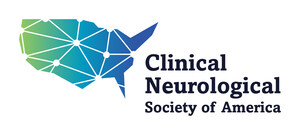Clinical proceedings paper details diagnosis, treatment options and caregiver burden of Alzheimer's patients' delusions, hallucinations
TALLAHASSEE, Fla., Aug. 3, 2022 /PRNewswire/ -- Citing a "substantial unmet need," a new paper from the Clinical Neurological Society of America offers unique insights from health care providers into the delusions, aggression and agitation that often accompany Alzheimer's disease. Psychosis impacts roughly 2.2 million of the 5.5 million Americans living with Alzheimer's, devastating caregivers and frustrating health care providers, who have no FDA-approved medications to treat the symptoms.
Whether it's visions of animals and people who aren't there, or an inability to recognize a spouse or even oneself in a mirror, symptoms of Alzheimer's disease psychosis are unsettling and often stigmatized. Well-meaning family members sometimes struggle to care for their loved one in the face of aggression and mistrust, which can intensify over time, the paper explains.
High Costs & Few Options
Certain communications strategies can help, as can daily routines and sensory therapy. But oftentimes, the authors explain, patients must relocate to a long-term care facility. Staff at the long-term care facility can work as part of a coordinated, multidisciplinary care team and collaborate with patients' caregivers. Greater coordination and a better understanding of Alzheimer's disease psychosis are needed to provide optimal care in these scenarios, the paper notes.
Meanwhile, long-term care adds expense to an already costly disease. The cost of Alzheimer's and other dementias is expected to reach nearly $1 trillion a year by 2050. Expenses burden both patients' families and the larger health care system. Effective, FDA-approved treatments for Alzheimer's psychosis would offer significant value, the paper explains. The antipsychotic drugs commonly used now are not approved for Alzheimer's and often introduce serious safety risks.
Learn more by reading, "Alzheimer's Disease Psychosis: A Substantial Unmet Need."
STATEMENT FROM HOWARD KIRSHNER, MD, CHAIR, CNSA CLINICAL PROCEEDINGS EXPERT PANEL:
"As the toll of Alzheimer's disease and Alzheimer's psychosis grows, this paper reminds our country how urgently we need better treatments, more collaboration among medical facilities and providers, and more clinicians willing to specialize in this area."
The Clinical Neurological Society of America, a non-profit 501(c)(6), is a nationwide organization of neurology clinicians with a mission to improve clinical practice and patient care through education.
SOURCE Clinical Neurological Society of America

WANT YOUR COMPANY'S NEWS FEATURED ON PRNEWSWIRE.COM?
Newsrooms &
Influencers
Digital Media
Outlets
Journalists
Opted In






Share this article